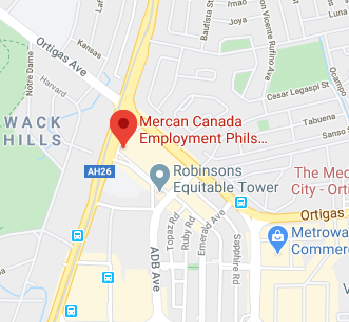Conjugal relationships
A conjugal relationship is one of some permanence, where individuals are financially, socially, emotionally and physically interdependent, where they share household and related responsibilities, and where they have made a serious commitment to one another.
Conjugal does not mean “sexual relations” alone. It indicates that there is a significant degree of attachment and mutual commitment between two partners.
See the conjugal partnership category in the Immigration and Refugee Protection Act (IRPA).
In the M. v. H. decision, the Supreme Court adopts a list of factors from the decision of the Ontario Court of Appeal in Moldowich v. Penttinen that must be considered to determine whether any two individuals are actually in a conjugal relationship. They include
- shared shelter (e.g. sleeping arrangements)
- sexual and personal behaviour (e.g. fidelity, commitment, feelings towards each other)
- services (e.g. conduct and habit with respect to the sharing of household chores)
- social activities (e.g. their attitude and conduct as a couple in the community and with their families)
- economic support (e.g. financial arrangements, ownership of property)
- children (e.g. attitude and conduct concerning children)
- societal perception of the two as a couple
In both conjugal partner and common-law relationships, there is not necessarily a specific point when a commitment is made, and there is no one legal document attesting to the commitment. Instead, there is the building of intimacy and emotional ties, and the accumulation of other types of evidence, such as co-habitation (specifically for common-law partners), naming one another as beneficiaries on insurance policies or estates, joint ownership of possessions, joint decision-making with consequences for one partner affecting the other, and financial support of one another (joint expenses or sharing of income, etc.). When taken together, these facts indicate that there is significant commitment and mutual interdependence in a monogamous relationship of some permanence, similar to that of a married couple.
On this page
The conjugal partnership category in the IRPA
Section 2 of the Immigration and Refugee Protection Regulations (IRPR) defines a conjugal partner as a foreign national residing outside Canada who is in a conjugal relationship with the sponsor and has been in that relationship for a period of at least one year. Although the word “conjugal” is not defined in legislation, there are a number of factors that are used to determine whether a couple is in a conjugal relationship (available internally only).
When assessing the conjugal partnership category, a possible factor or reason why neither common-law partner status nor marriage is possible may be because of marital status or sexual orientation. For example, a foreign partner may be from a country where divorce is not possible or where same-sex marriage is not recognized. Such partners may not be able to obtain long-stay visas in order to live together and meet the cohabitation requirement for common-law partners. When the option of marriage is not available, such couples could be permanently separated. In all other respects, conjugal partner couples are similar to a common-law couple or a married couple.
In the context of immigration, a conjugal partnership applies only to the family class, as found under R117(1)(a), and only to a foreign national abroad who is sponsored by a Canadian citizen or permanent resident living in Canada. It does not apply to applicants in the spouse or common-law partner in Canada class.
Interpretations of conjugal relationships as defined by the Immigration Appeal Division
- The sponsorship application was refused without an interview, as the IRCC officer found that the couple did not demonstrate that a situation exists beyond their control that prevents them from living together as a common-law spouse or getting married, or from travelling to do so. The appellant and the applicant had been in a conjugal relationship for a year before the application was filed.
- The appeal was allowed, as it was determined that the appellant and the applicant meet alternative requirements for a conjugal relationship as they have a “marriage-like” relationship (loving relationship, financial support, spend time together, familiar with friends and families).
- The IRCC officer refused this sponsorship application, as they believe the applicant and the appellant are not conjugal partners.
- The appeal was allowed, as the Immigration Appeal Division (IAD) found the appellant and applicant to be genuine partners based on the fact that they share shelter, and based on their sexual and personal behaviour, their social activities, societal perception of the couple, economic support and credibility.
- The IRCC officer refused this sponsorship application, as there were no barriers preventing the appellant and the applicant from marrying or living as common-law partners.
- The appeal was allowed, as the IAD argued that the officer failed to assess the proper criteria set in M. v. H. Additionally, the explanations provided by the appellant and the applicant as to why they did not marry or live as common-law are not irrelevant considerations in assessing whether or not the appellant and the applicant are in a fully committed relationship. While the appellant did give inconsistent explanations for why she and the applicant could not and did not marry, the IAD found they could have married but the appellant has personal objections to the institution of marriage. Nevertheless, this did not undermine the overwhelming evidence that the appellant and the applicant have been in a lengthy conjugal relationship that began well before she submitted her sponsorship application and has continued to the present time.
- The IRCC officer refused the application even though they assessed that the couple had a genuine, committed and loving relationship with elements of dependency. However, the officer felt that the appellant was required to show some impediment to marriage or cohabitation to qualify as a conjugal partner under R2.
- The appeal was allowed, as the IAD stated that the imposition by the visa officer of a requirement that there must be some sort of impediment to marriage or cohabitation is not legally valid, as the requirement does not appear in immigration processing manuals nor in the definition of conjugal partner in R2 or anywhere else in the legislation.
Assessing applications from conjugal partners
- Requirements
- Inability to cohabit due to persecution or any form of penal control
- Applicant or sponsor legally married to another person
- Prohibited – conjugal relationships
- Relationship breaks down and the sponsor wants to sponsor a previously separated spouse
Requirements
A foreign national intending to immigrate as the conjugal partner of a sponsor must provide evidence that
- they have maintained a conjugal relationship with their sponsor for at least one year
- they are in a committed and mutually interdependent relationship of some permanence and have combined their affairs to the extent possible
Although the intention of the conjugal partner category is to accommodate Canadians and permanent residents with foreign partners who can neither marry nor live together, the inability to marry cannot be an absolute requirement, as this could have the effect of “forcing” those couples to marry who may have chosen not to. Persons who have established and maintained a conjugal relationship for one year and who do not intend to marry may be considered conjugal partners. The key to determining whether an individual is a conjugal partner is whether they are in a conjugal relationship with their sponsor and whether there is a committed and mutually interdependent relationship between the applicant and sponsor.
Conjugal partnership is not a legally recognized status within Canada and those in a conjugal relationship do not have the same rights or benefits as spouses or common-law partners under Canadian law. Once in Canada, it is expected that partners will convert their ongoing conjugal relationship to a common-law relationship (that is, cohabit for one year) or they will marry.
Inability to cohabit due to persecution or any form of penal control
Persons who have been in a conjugal relationship for at least one year but who have been unable to cohabit due to persecution or any form of penal control may be considered a common-law couple (R1(2)) for the purposes of being sponsored for permanent residence as a conjugal partner. “Persecution” is intended to include “fear of persecution or any form of penal control”; it is not restricted to a couple being persecuted for the act of cohabiting itself.
“Persecution” in this context refers to actions taken by a state or government to oppress or punish, usually by law, persons in certain types of relationships, such as same-sex relationships. Persecution can also mean strong social sanctions whereby the culture and mores of the country result in ostracism, loss of employment, inability to find shelter or other sanctions for persons in common-law opposite-sex or same-sex relationships, even if such relationships are not technically illegal.
“Penal control” is any punitive restriction imposed by authorities on an individual or group that does not apply to the general population. For example, in some foreign jurisdictions, two persons in a same-sex relationship may be unable to live together because it is illegal.
Applicant or sponsor legally married to another person
Persons who are married to third parties may be considered conjugal partners provided their marriage has broken down and they have lived separately and apart from their spouse for at least one year. A conjugal relationship cannot be legally established if one or both parties continue to maintain an intimate relationship with a person to whom they remain legally married.
Although a couple in a conjugal partner relationship might have known one another while one or both was still with their legally married spouse, they could not be in a conjugal relationship until there was a separation from the legally married spouse and the new conjugal relationship was established. Officers must be satisfied that a principal applicant is separated from and no longer cohabits with a legal spouse. If information provided in the Relationship Information and Sponsorship Evaluation (IMM 5532 (PDF, 2.21 MB)) is insufficient, officers should request additional evidence, such as
- a signed formal declaration that the marriage has ended and that the person has entered into a common-law relationship
- a separation agreement
- a court order about custody of children that substantiates the marriage breakdown
- documents removing the legally married spouse(s) from insurance policies or wills as beneficiaries (a “change of beneficiary” form)
In the above circumstances, the legal spouse of the principal applicant will not be examined and, therefore, is not a member of the family class.
Prohibited – conjugal relationships
Conjugal partner relationships are recognized to have most of the same characteristics as marriages and exclusive common-law relationships. By definition, a conjugal relationship has most of the same legal restrictions as marriage, such as prohibited degrees of consanguinity. The list of relationships falling within the prohibited degrees in the Marriage (Prohibited Degrees) Act applies equally to conjugal partners.
The minimum age for spouses, common-law partners and conjugal partners is 18 (R117(9)).
See also:
Relationship breaks down and the sponsor wants to sponsor a previously separated spouse
A previously separated spouse who was a non-accompanying family member and was not disclosed and examined cannot be sponsored by the spouse in Canada, even if the spouse’s common-law or conjugal partner relationship has ended.
See also:
A marriage certificate is not taken as prima facie proof of a relationship because the marriage broke down and a common-law relationship was established.
See also:


